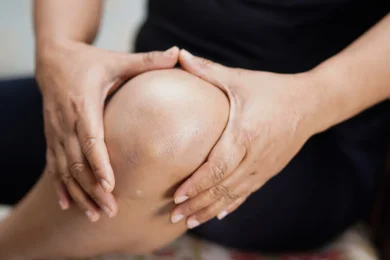Understanding Acute & Chronic Hip Pain
Your hip joint is one of the largest weight-bearing joints in your body, responsible for supporting your entire upper body weight while enabling a remarkable range of motion. When pain in the hip area develops, it can affect everything from walking and climbing stairs to simply getting in and out of a car.
We understand how frustrating it can be to wake up each morning wondering if today will be the day your hips hurting finally improves, only to face another day of limited mobility and persistent discomfort. Hip joint pain doesn’t just affect your physical health; it can also disrupt your sleep, limit your ability to exercise, prevent you from playing with your children or grandchildren, and diminish your overall sense of well-being.
The distinction between acute and chronic hip pain is important for developing the right treatment approach. Acute hip pain typically develops suddenly, often following an injury, overuse, or specific incident, and may resolve with appropriate treatment within weeks to months. Chronic hip pain, on the other hand, persists for three months or longer and often requires a more comprehensive treatment strategy. Whether you’re dealing with a recent hip injury or long-standing hip pain that’s been gradually worsening, our team at Pain Management of North Dallas takes the time to understand your unique situation, listen to your concerns, and develop a treatment plan designed for your specific healthcare needs.
What Causes Hip Pain?
Understanding the hip pain cause behind your discomfort is essential for developing an effective treatment plan. The hip is a complex ball-and-socket joint surrounded by powerful muscles, tendons, ligaments, and fluid-filled sacs called bursae that cushion the joint during movement. Pain can originate from the joint itself, the surrounding soft tissues, or even be referred from your lower back or other areas.
Some of the most common conditions we diagnose and treat include:
- Arthritis
- Bursitis
- Tendonitis
- Hip Labral Tears
- IT Band Syndrome
- Hip Impingement
- Muscle Strains
- Stress Fractures
Contributing factors can include age-related wear and tear, previous injuries, overuse from sports or physical work, obesity, inflammatory conditions, and even structural abnormalities present from birth.
At Pain Management of North Dallas, we use advanced diagnostic techniques to identify the precise source of your hip joint pain, ensuring that your treatment addresses the underlying problem rather than simply providing temporary relief.
How We Treat Hip Pain and Discomfort in North Dallas
Our team of pain management experts offers a comprehensive range of treatment options designed to provide effective hip pain relief while improving your function and quality of life. Our integrated medicine approach means we don’t rely on a one-size-fits-all solution. Instead, we customize your treatment plan based on your specific diagnosis, pain severity, overall health, lifestyle, and personal goals.
For many patients, we begin with conservative management strategies that may include targeted physical therapy to strengthen the muscles supporting your hip joint and improve flexibility, activity modification guidance to reduce stress on the hip while maintaining mobility, and appropriate medication management to control inflammation and pain. When conservative treatments alone aren’t providing adequate relief, we offer advanced interventional procedures such as image-guided hip joint injections using corticosteroids or hyaluronic acid, regenerative medicine treatments including platelet-rich plasma (PRP) therapy, nerve blocks for specific pain patterns, and radiofrequency ablation for certain types of chronic hip pain.
We also work closely with other specialists when appropriate to ensure you receive comprehensive care that addresses all aspects of your condition. Our team serves patients throughout the North Dallas area, with convenient locations in Frisco, Plano, McKinney, and Dallas, making it easy to access the care you need close to home or work.
Ready to get help for your hip pain? Request an appointment with one of our board-certified pain specialists today at Pain Management of North Dallas.
Frequently Asked Questions About Hip Pain Treatment in North Dallas
How do I know if my hip pain is serious enough to see a doctor?
You should seek medical attention if your hip pain is severe, appears suddenly after a fall or injury, is accompanied by swelling or signs of infection, prevents you from bearing weight on the affected leg, or persists despite home care measures for more than a few days. Additionally, if you’re experiencing chronic hip discomfort that’s gradually worsening, limiting your activities, or affecting your quality of life, it’s worth scheduling an evaluation even if the pain isn’t severe. Early intervention often leads to better outcomes and can prevent minor issues from becoming more serious problems.
Can hip pain be related to problems in other parts of my body?
Absolutely. Hip pain doesn’t always originate in the hip joint itself. Conditions affecting your lower back, such as herniated discs or sciatica, can cause referred pain that you feel in your hip or buttock area. Similarly, problems with your sacroiliac joint, which connects your spine to your pelvis, often cause pain that patients describe as hip pain. This is why a comprehensive evaluation is so important. Identifying the true source of your pain ensures you receive the most effective treatment.
Will I need surgery for my hip pain?
Most hip pain can be effectively managed without surgery. At Pain Management of North Dallas, we specialize in non-surgical and minimally invasive treatments that help the majority of our patients avoid surgery altogether. We focus on conservative care, physical rehabilitation, medication management, and interventional procedures that can provide significant relief. Surgery is typically considered only when conservative treatments haven’t provided adequate improvement, or in cases of severe structural damage or certain types of injuries.
How long will it take before I feel improvement in my hip pain?
The timeline for improvement varies depending on the underlying cause of your hip pain, the severity of your condition, and the treatment approach we select together. Some patients experience relief within days of starting treatment, particularly with interventional procedures like injections, while others may see gradual improvement over several weeks or months with physical therapy and medication management. During your consultation, we’ll discuss realistic expectations for your specific situation and develop a treatment timeline with clear goals. Most importantly, we’ll monitor your progress closely and adjust your treatment plan as needed to ensure you’re moving toward your recovery goals.

















